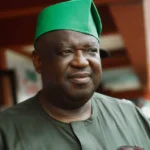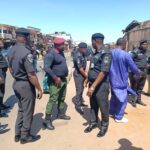People within and outside Plateau State who are familiar with Mangu town are still trying to unravel the mystery behind the recent crisis that enveloped the town and communities around it.
Some weeks ago, ethno-religious crisis erupted in Mangu town of Mangu Local Government Area, resulting to loss of lives and property. Experts argue that there has not been a deliberate effort toward understanding the root causes of the conflict and differences between parties involved.
They noted that the recent outbreak of inter-tribal and religious conflict in Mangu town had shocked hundreds of people in the state. This is particularly surprising, considering the fact that majority of the inhabitants belong to either the Mwaghavul or Pyem tribes.
Virtually, in every family of the Mwaghavul or Pyem tribes, there are members practising either Islam or Christianity.
- Plateau crisis: 91 killed, 158 injured in Mangu crisis – Mwaghavul
- Illegal vigilante: Court orders FG to try Miyetti Allah leader
Again, other tribal groups that settled in the town, such as the Fulani and Yoruba, have lived and intermarried with e Mwaghavul and Pyem across faiths, for over a century. Similarly, the Hausa and Igbo have equally lived in Mangu town for close to a century, and have also inter-married with the indigenous and non-indigenous tribal groups.
This unique coexistence, according to some of the residents of the area, hitherto shielded the area from the ethno-religious crises that have plagued other parts of Plateau State for the past three decades, claiming thousands of lives and destroying property worth billions of naira.
However, the visible destruction of churches, mosques, residential houses and businesses along the streets of Mangu town caused by the recent conflict appears to be an evident sign of the damages inflicted on the psyche of the people, who turned against one another during the religious tension.
As a consequence of the recent crisis, many places and commercial areas in Mangu are currently deserted, with residents struggling to recover from the losses of their properties and businesses.
The conflicts that occurred on January 23 and 24 in the main town of Mangu shattered the decades of peace for which it has been known.
These conflicts resulted in numerous casualties and the destruction of religious centres and other properties, causing the deterioration of relationships that had spanned decades among residents of the area. Many are still unable to move freely like before for the fear of losing their lives.
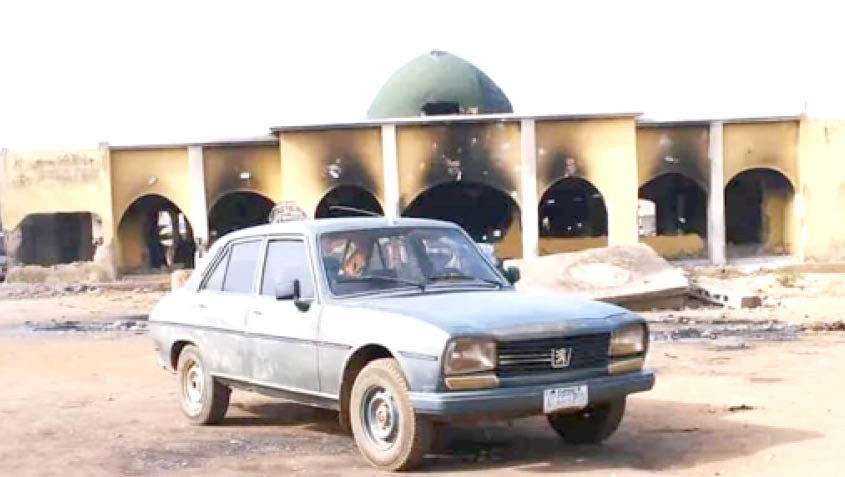
As observed by Daily Trust Saturday, residents are now segregated along religious lines, with Christian and Muslim communities living separately.
Prior to the January, 2024 crisis, several villages inhabited by both Mwaghavul farmers and Fulani herders were attacked, resulting in the deaths of many people, including women and children. The escalation of the farmers-herders crisis spiraling into ethno-religious tension among the residents of Mangu town further fractured their decades of peaceful relationship.
All those who spoke to Daily Trust Saturday on the incidence of January 23 and 24, agreed with the United Nation’s (UN’s) belief that living together in peace “is about accepting differences and having the ability to listen to, recognise, respect and appreciate others”.
The current governor of Plateau State, Caleb Mutfwang, a lawyer and politician, hails from Mangu LGA. He had served as Chairman of Mangu LGA.
How farmers-herders crisis escalated into ethno-religious tension
Religious and community leaders in the area have explained how the decades-long relationship soured suddenly despite efforts to maintain it.
“The forces are coming from outside because the Fulani, with whom we have been living together, would not one day take arms against us. It appears the problem stems from those who came from outside,” Joseph Gwankat, the national president of Mwaghavul Development Association (MDA) alleged.
He said that aside the coming of external forces, “shortage of land is also another factor causing the crisis due to the increase in population. People have gone back to farming, creating a shortage of land. The cattle route, which has been gazzetted, is no longer there. Therefore, there will certainly be conflicts because population has increased, but land has not. Government has to study all these so is meditated.”
Gwankat said it was unfortunate that residents of Mangu suddenly found themselves in an ethno-religious crisis despite their efforts to avoid it, adding, “Crisis merchants were behind the crisis. The cause of the crisis is mischief makers. There are people who gain a lot from this conflict. There are conflict merchants who sell guns and make money out of it.
“The January conflict was very unfortunate because, as far as we are concerned, we don’t have religious conflict in Mangu. What happened in Mangu that took a religious correlation was unfortunate because we have been trying to avoid that. Some of my brothers are Muslims and I cannot take arms against them,” Gwankat added.
For Timothy Samson Daluk, the chairman of the Christian Association of Nigeria (CAN) in Mangu, the crisis spread to many places because of the alleged continued attacks by herders. He added that lack of religious tolerance and inflammatory sermons delivered by both Christian and Islamic leaders were also factors that heated up religious tension in the area, which subsequently fractured their relationship.
Daluk said, “What really happened in Mangu is very unfortunate, knowing that in every family, there are Muslims and Christians. A good number of people that died from both Christian and Muslim communities are Mwaghavul. The houses burned are our houses.”
Some religious leaders from Muslim communities also believe there are other problems that could be connected to the religious tension in the area.
They mentioned political and economic factors, as well as exclusion of some inhabitants in governance in the local government authority, which has further strained the relationship between various communities of people of the two major religions.
Abdullahi Maicibi Panshak, a Mwaghavul and an imam in Mangu said, “To me, one of the factors that made the relationship between Muslims and Christians tense in Mangu is politics. Before now, whenever a Muslim was coming out to contest for a councillorship position in ward 1, Christians would object to that. They claim that our number doesn’t qualify us to contest the election.
“We are being denied the right to participate in politics in Mangu because of our faith. They said our number was increasing by the day, and if we were allowed to hold political positions, we would one day take control of the ward like the Hausa that dominated Jos North. This has created a kind of disagreement and lack of confidence between the communities,” he added.
Sulaiman Haruna Abubakar, a Pyem and Muslim youth leader in the area said, “For me, the crisis has a long history. The whole thing started as farmers-herders crisis where Mwaghavul and Fulani communities started fighting in some villages.
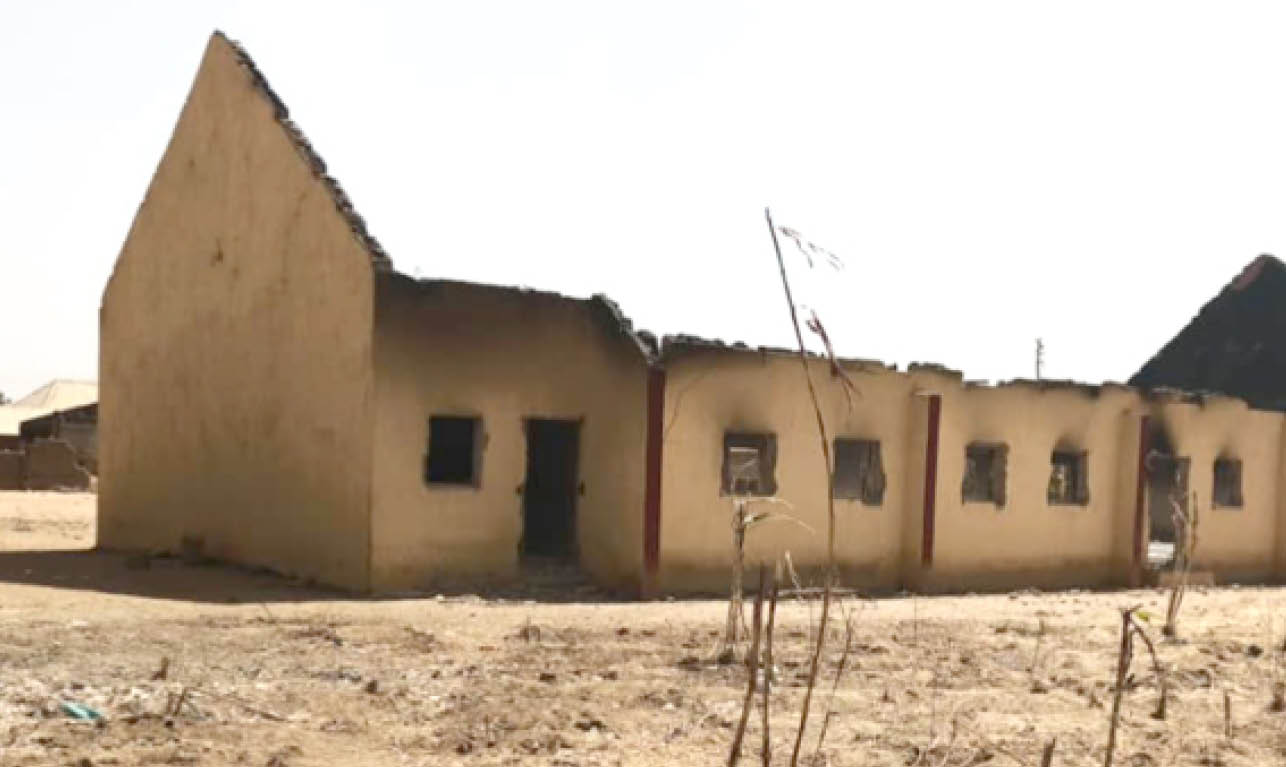
“Apart from the crisis between these two communities, we (the Muslims) in Mangu have been facing lots of challenges. We are not considered in the affairs of government. We are not included in the government, even at the local level because of our faith.
“We are indigenes of Mangu but we are not given employment; that is why we (Muslims), especially in ward 1 support political parties different from what the Mwaghavul Christians support during elections. In every electioneering period, we don’t vote the same party with Mwaghavul Christians. This development is making the relationship very difficult by the day.
We support different parties, believing that we would be carried along. I am Pyem by tribe but because of my religion, I am not seen as an indigene. Why should we continue to live like this?” Haruna asked.
Residents give conditions for peaceful coexistence
The residents of the communities, however, suggested that despite what had happened, they still love to live harmoniously.
“I still believe that hope is not lost, knowing the fact that we regret the actions taken by the youth.
“Peace is achievable if we, the religious leaders, change our inflammatory sermons, both in the mosques and churches. Most times, we send messages that are contrary to the teachings of both the Qur’an and the Bible. So, religious leaders must come to terms to agree to live in peace.
“We must also respect each other’s religion. Muslims should call us with our names as Christians. We must come together as brothers. Where we were wrong, let’s admit it and forge ahead with lasting peace.
“Even the Fulani are our brothers because we have been living with them for donkey years. If the Fulani will stop attacking us, the crisis will stop.
“Again, the continued stay of internally displaced persons in the camp is a source of concern. The government should do something quickly to return them to their ancestral homes. This is another way that peace can be restored. The more they stay there, the more they become angry.
“I call on Christians and Muslims to come to terms to live together. If God wanted all of us to be Christians, that would have happened. If God wanted all of us to be Muslims, he would have forced all of us to be Muslims,” the CAN chairman said.
The national president of the MDA also said, “We cannot continue like this because no one gains anything from it. However, hope is not lost. If we can understand ourselves better, we will live together. We must also forgive each other despite what we have lost. If we can have dialogue and understand our differences, certainly, things will be better.
“Everything starts with dialogue, where all of us will sit and ask ourselves where we got it wrong. Why did it happen that way? It is not a must to belong to one religion. Let us know the mischief makers and fish them out. The best thing is dialogue; you cannot replace it with anything because it is through it that you will understand each other and be able to live in peace,” Gwankat said.
Enoch Markus, a camp director of the IDPs, believes that peace could be attained “if both leaders of the Mwaghavul, Fulani, as well as Muslim communities, agree to go round and talk to their members about the importance of living together peacefully.”
He added, “Let the members of all warring communities witness these leaders going round and demonstrating examples of togetherness. This is an important role. People still want to live together, irrespective of their differences.
“Many Muslims have saved numerous Christians; likewise, many Christians saved many Muslims during the crisis. Therefore, it is something that can be resolved.”
From the perspective of Muslim communities, Haruna said, “There are so many things that need to be done to address the crisis.
“People currently have access to weapons. Guns are everywhere. Security must sweep out weapons in various communities of the local government area. We must agree as communities to allow the military to come in and mop up the guns. Unless this is done, there is a serious problem because the youths are not listening to the elders.
“Secondly, government must embrace everyone, irrespective of their ethno-religious affiliations. Everybody should be considered in the affairs of government. Muslims should be given government jobs as others. This is how people will develop confidence and normalcy will be restored.
“Thirdly, the Fulani that were driven out of Mangu should be allowed to go back to their houses so that there won’t be attacks and counterattacks. Pushing them out of their communities also creates tension. Once all these are done, we will have a situation where there wouldn’t be any tension.”
Abdullahi Panshak also said, “For there to be peace, politicians must stop instigating people against one another. We should not be seen as enemies to one another. We should be seen as brothers’ keepers since it is God that created us and made us to live together. So long as everyone would be given the constitutional right to live wherever they wish and participate in politics of their choice, there would be peace amongst us.”
Peace is possible – Expert
Dr Abdulrahman Imran, a senior lecturer at the Centre for Conflict Management and Peace Studies in the University of Jos, as well as a resource person at the Centre for Peace and Initiative Development, said that if government would be serious, the conditions given by the affected communities were achievable.
He said, “The conditions set by the parties involved are not sufficient to achieve the desired result unless the initiators among the people who are influencing the crisis come to terms.
“It is not just about agreeing to live together. What is the cause of the conflict? How deeply rooted are the issues? All these must be identified. There is a lot of work to be done by civil society groups and the government for the conditions to be sustainable.
“If you have a peace agreement you need to build into the process of the agreement and do follow-ups for grievances to be addressed, so that other issues that would come up in the future could also be tackled. That is why you need a sustainable mechanism for addressing the current factors that led to the crisis.
“The conflict in Mangu is complex; beyond just inter-ethnic issues. The religious divide became very obvious even within the Mwaghavul and Pyem, to the extent that a Mwaghavul or Pyem man was destroying another Mwaghavul or a Pyem man’s house because of religious differences.
“Yes, people who are very sincere may want peace, but the question is: How much are they in control of those that are perpetrating the conflict within the super structure of the politics of the state? For there to be a lasting peace, the elite need to change; and once they change, everyone will follow suit,” Dr Imran said.
Mangu local government also host the factory of Nigeria’s first and most cherished bottle water; SWAN Spring Water, located at the foot of the Kerang Volcanic Mountains.
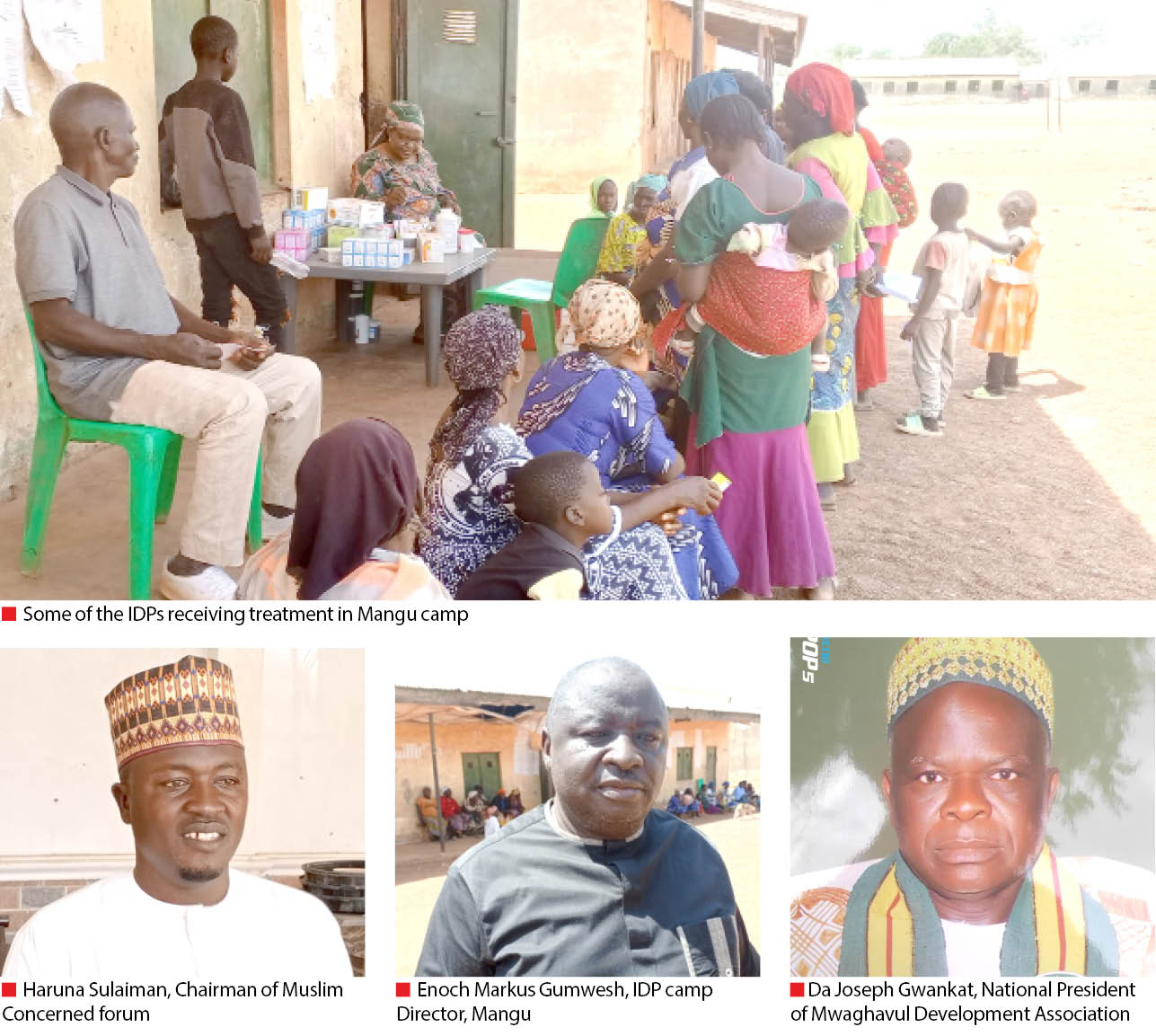
 Join Daily Trust WhatsApp Community For Quick Access To News and Happenings Around You.
Join Daily Trust WhatsApp Community For Quick Access To News and Happenings Around You.